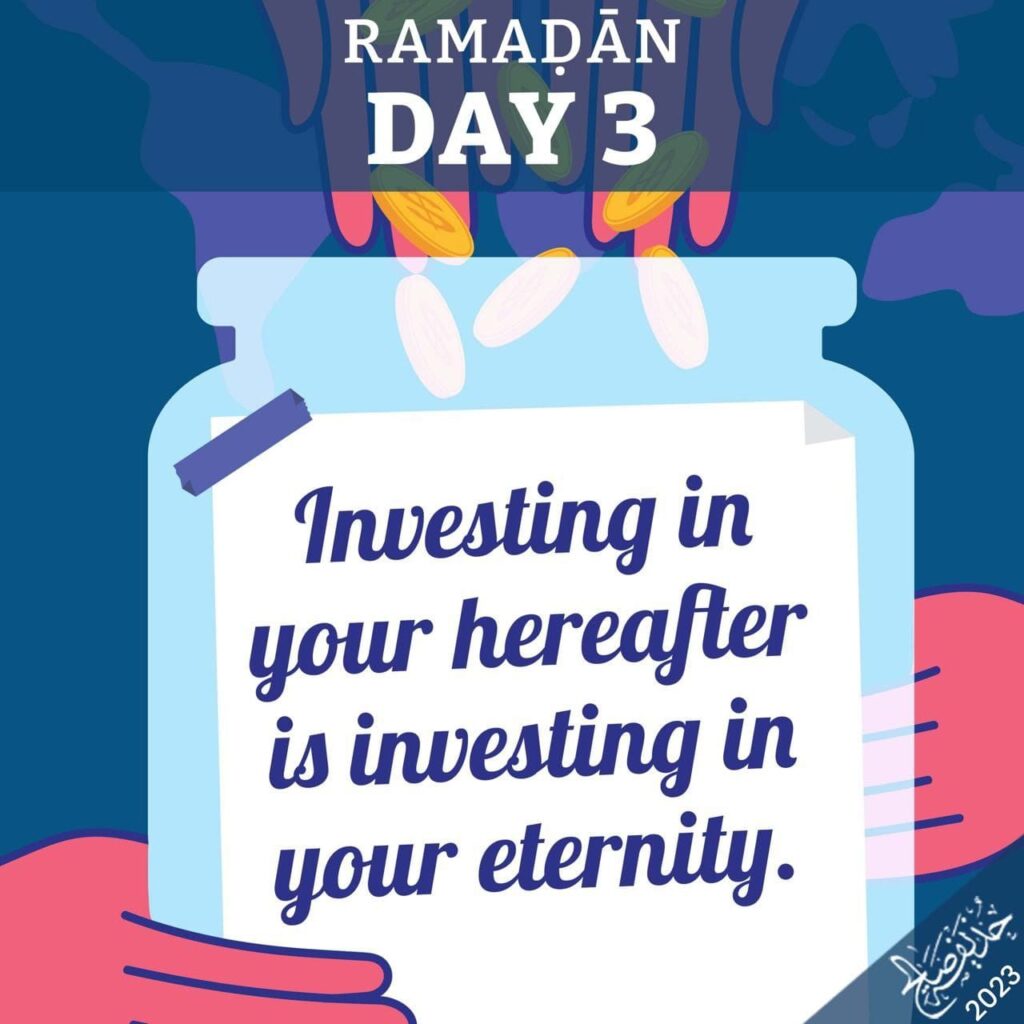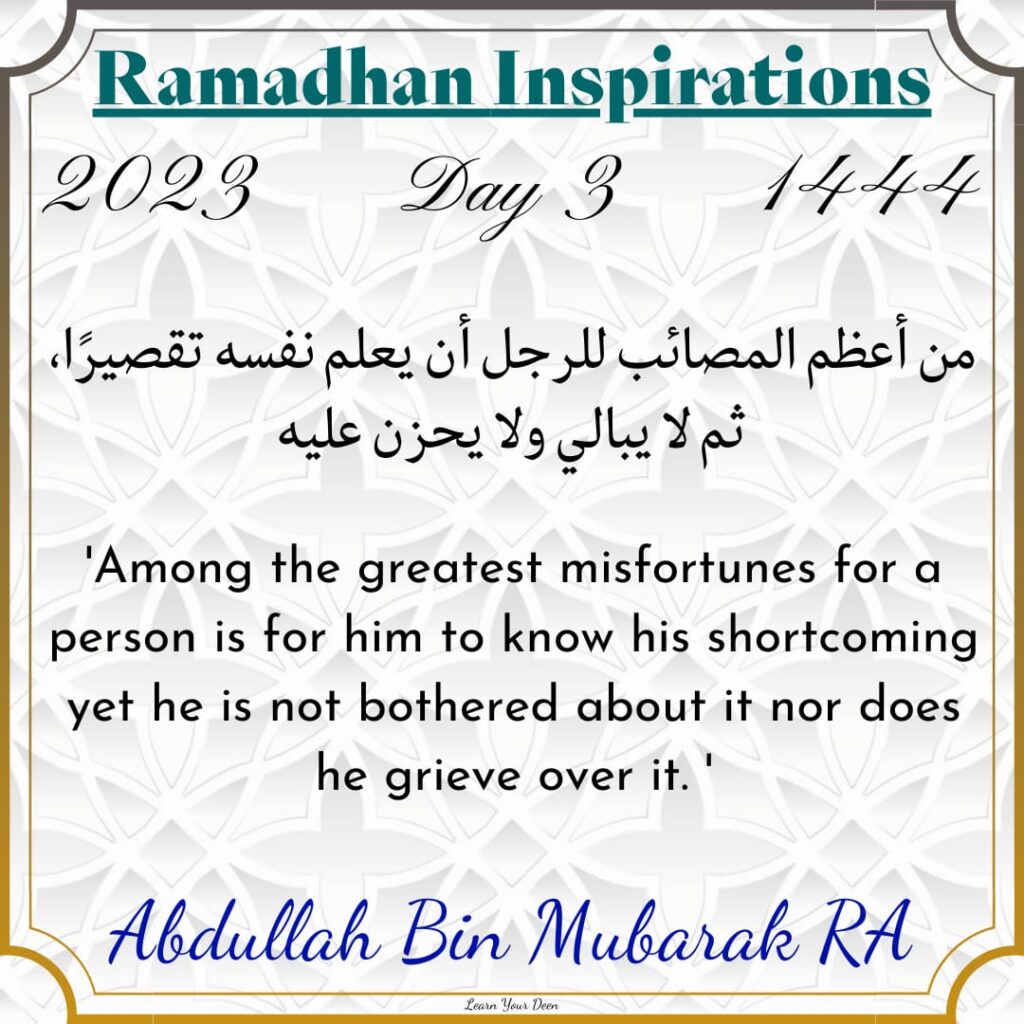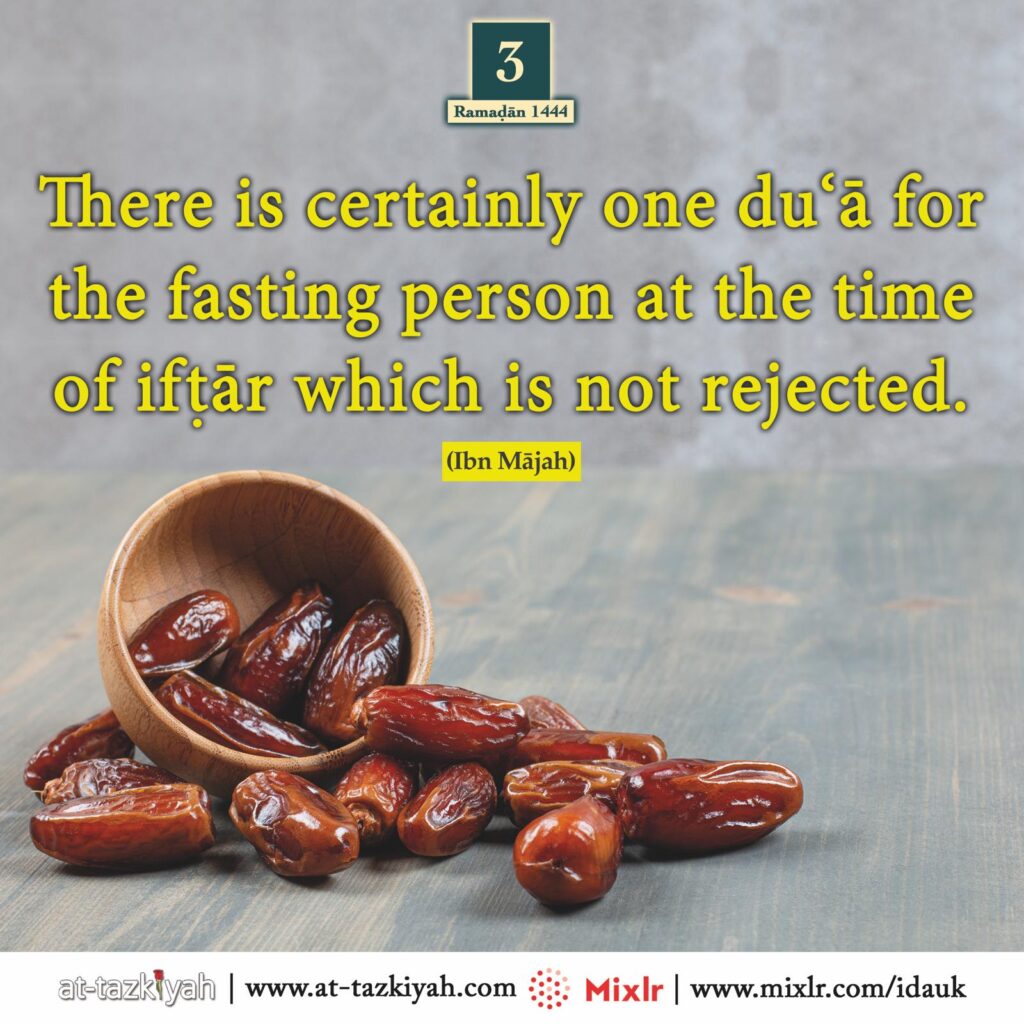Ramadan Day 3

The life of the hereafter being the eternal life is a fundamental belief of all Muslims. Our Prophet ﷺ informs us of three investments to make: “When a man dies, his actions come to an end, except three: (1) recurring charity, or (2) knowledge, by which people benefit, or (3) a pious son, who prays for him (for the deceased).” [Sunan Ibn Majah 237]
Muftī Shafīʾ explains in Maʿāriful Qur’ān the three conditions that make charity a form of worship.
- That which is spent in the way of Allāh ﷻ should be clean, pure and ḥalal for it appears in Ḥadīth that Allāh ﷻ accepts nothing but that which is clean, pure and ḥalāl.
- One who spends should be good in intentions and righteous in deeds. An ill-intentioned and showy spender is like that ignorant farmer who throws away the grain on a spot where it is wasted.
- The one to whom Ṣadaqah is given should be deserving of it.
Two conditions that make charity go in vain are:
- Publicising your favour after spending
- Considering the one who receives your Ṣadaqah as disgraced, or insulting him and causing him pain.
Allāh ﷻ is need-free (الغني) as well as Forbearing (الحليم). Allāh ﷻ needs nothing from us. Us spending in the path of Allāh ﷻ doesn’t benefit Allāh ﷻ in any way. Therefore, an intelligent being should keep in mind that whilst spending in the way of Allāh ﷻ, he isn’t doing anybody a favour, he is actually spending for his own good.
[Maʿāriful Qur’ān, Volume 1, Page 651-652]
Siblingsofilm.com


